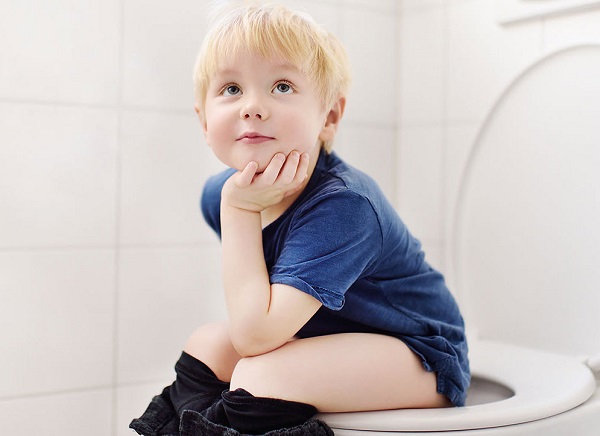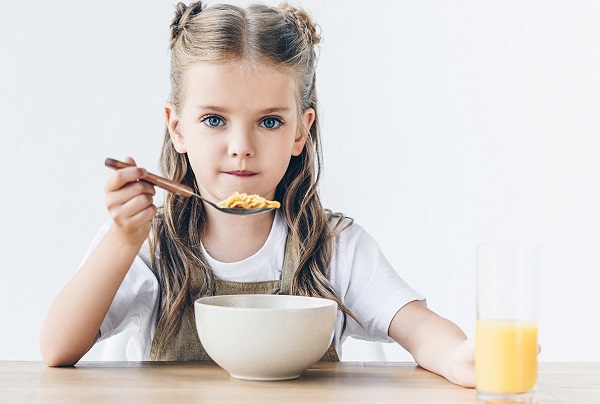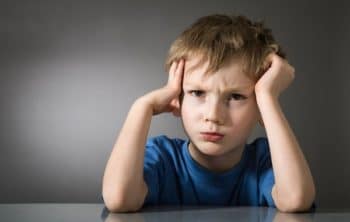When it comes to childhood constipation treatment, there are a few things that parents need to keep in mind. Are you struggling to find a childhood constipation treatment that works for your child? Are you not sure what the causes and symptoms of this condition are? If so, you’ll want to read on.
In this post we will discuss the various causes of childhood constipation, as well as its symptoms and different treatment options. We hope that by reading this post you will have a better understanding of this condition and be able to help your child manage it more effectively. So, without further ado, let’s get started!
Contents
What is Constipation in children?
Constipation in children is defined as passing hard, dry stools less than three times per week. Constipation is a common problem in children, and it can be frustrating for both parents and kids.
There are many possible causes of constipation in children, including a diet that’s low in fiber, not drinking enough fluids, or a lack of physical activity. Some medical conditions can also lead to constipation, such as hypothyroidism or celiac disease.
Fortunately, there are many things you can do to help relieve your child’s constipation. These include changing their diet, making sure they’re getting enough exercise, and using stool softeners or laxatives if needed. With a little patience and effort, most children will be back to regular bowel movements in no time.
What is encopresis?
Encopresis is a condition where a child leaks stool onto their underwear. This can happen because the child is holding back stools, and the stools build up and get bigger. The rectum can stretch from the stool being too big, and then the child may not feel the urge to go to the bathroom. Treatment is available and it usually takes months for things to improve.
Childhood Constipation Symptoms:
If your child is constipated, they may have one or more of the following symptoms:
- Infrequent bowel movements (fewer than three per week)
- Hard or dry stools
- Painful bowel movements
- Straining during bowel movements
- Blood in the stool (due to hard stools scraping against the anal opening)
- Leakage of soft stool around hard stool (overflow soiling)
Symptoms of constipation may vary depending on the age of your child. For example, infants and young children may become irritable, have a poor appetite, or experience pain in their abdomen or rectum. Older children may complain of abdominal pain, headache, fatigue, or loss of appetite.
Constipation can also cause bedwetting in children who have previously been dry at night.
Childhood Constipation Causes:
There are many possible causes of constipation in children. Sometimes there is no obvious reason. Some of the potential causes include:
- Not eating enough high-fiber foods like fruits and vegetables.
- Not drinking enough fluids.
- Feeling pressured or being regularly interrupted while potty (or toilet) training.
- Feeling worried or anxious about something – such as moving house, the arrival of a new baby, or starting nursery or school.
If your child is constipated they may find it painful to poo, which may mean they do not want to try to poo. This can create a vicious circle; the more they hold back, the more difficult and painful it becomes, leading to further avoidance. This can then lead to constipation becoming a chronic problem.
If you think your child may be constipated, it is important to talk to your pediatrician. They will be able to help determine the cause and develop a treatment plan. With proper treatment, most children will be able to resolve their constipation and go back to having regular, easy bowel movements.
Childhood Constipation Treatment:
There are a few things you can do to help your child with constipation:
- Encourage them to drink plenty of fluids. This will help keep their stools soft.
- Make sure they’re getting enough fiber in their diet. Fiber helps add bulk to stools and makes them easier to pass. Good sources of fiber include fruits, vegetables, whole grain breads and cereals, and beans.
- Encourage them to exercise regularly. Exercise helps stimulate the natural movement of the bowel.
- If they’re old enough, have them try over-the-counter stool softeners or laxatives. These can help make it easier for them to have a bowel movement.
If these home remedies don’t seem to be helping, or if your child is in pain, contact your doctor. They may prescribe a stronger laxative or stool softener for your child. In severe cases, constipation may need to be treated with surgery.
Treating constipation with soiling (children pooing their pants):
If your child is constipated, it can be difficult and sometimes painful for them to pass stools. This can lead to soiling, where they accidentally pass stools (poo) into their clothes. It’s important to remember that children usually don’t do this on purpose, so there’s no need to get cross with them.
Try to stay calm and relaxed, as this will help your child feel more comfortable. You can speak to a health visitor or GP for more advice on how to help your child. They may also have some helpful tips on toilet training if this is something you’re thinking about.
How to prevent constipation?
- As your baby starts to eat solid foods, it’s important to make sure they’re getting enough fluids. Offer breastfed babies who are not eating solids yet plenty of breastfeeds. Formula-fed babies can have extra drinks of water between their formula feeds. See more advice on drinks for babies and toddlers.
- If your baby is constipated, give them extra fluids to help soften their stools. You can also try giving them diluted fruit juice or smooth prunes.
- A varied diet is important for young children, as it helps them to get the nutrients they need for growth and development. including plenty of fruit and vegetables, which are a good source of fibre. See what to feed young children. Fruit and vegetables are not only a good source of fibre, but also contain vitamins and minerals that are essential for health. Try to include a variety of different coloured fruits and vegetables in your child’s diet, as each colour group contains different nutrients.
- It’s important to encourage your child to be physically active from an early age. According to the physical activity guidelines for children aged under 5 years, they should be active for at least three hours every day. This can include playing, running, dancing or any other type of movement.
- It’s important to get your child into a regular potty or toilet routine, after meals or before bed. This will help them be more successful in using the potty or toilet, and you can praise them whether or not they poo. Boys in particular may forget about pooing once they are weeing standing up, so it’s important to remind them to sit down when they need to go.
- If your child is having trouble pooping, make sure they are in a position that allows their feet to rest flat on the floor or a step. This will help them to eliminate properly and prevent constipation. The Children’s Bowel & Bladder Charity’s leaflet, Children’s Bowel Problems (PDF, 2.48Mb) shows the proper position for pooping. If your child is still having difficulty, talk to your pediatrician about other options.
- If your child is feeling worried about using the potty or toilet, it’s important to talk to them about their concerns. Some children do not want to poo in certain situations, such as at nursery or school. By understanding their fears, you can help your child overcome their anxiety and learn to use the potty or toilet successfully. If your child is struggling with potty training, please don’t hesitate to speak to your GP, health visitor or a qualified continence advisor for further advice and support.
If your child is anxious or stressed about going to the toilet, there are a few things you can do to help them feel more relaxed.
First, try to stay calm and reassuring yourself. This will help your child see that going to the toilet is not a big deal or something to be ashamed of.
Second, you can talk to a health visitor about ways to reduce the stress around toileting for your child. They may have some helpful tips and advice.
Finally, remember that everyone goes through this phase at some point in their life, so it’s nothing to be ashamed of. Just keep working with your child and eventually they’ll overcome their anxiety and be able to go to the toilet like everyone else.
When to see a doctor?
Constipation in children is usually not serious. However, chronic constipation may lead to complications or signal an underlying condition. If the constipation lasts longer than two weeks or is accompanied by any of the following, take your child to see a doctor:
- Fever
- Not eating
- Blood in the stool
- Abdominal swelling
- Weight loss
- Pain during bowel movements
- Part of the intestine coming out of the anus (rectal prolapse)
Chronic constipation can lead to complications such as stool impaction, in which hardened stool gets stuck in the intestine and can’t be passed. Stool impaction can be very painful and may require medical treatment. In rare cases, chronic constipation can also cause a tear (fissure) in the lining of the anus or rectum.
If you’re concerned about your child’s constipation, talk to your child’s doctor. The doctor can help determine whether there’s an underlying condition causing the problem and recommend treatment. In most cases, simple changes in diet and bathroom habits can help relieve constipation in children.
Complications of constipation in children:
Chronic constipation in children can lead to a number of complications, including:
- Anal fissures: These are small tears in the skin around the anus that can be extremely painful.
- Rectal prolapse: This is when the rectum comes out of the anus. It can be painful and may require medical treatment.
- Stool withholding: This is when a child withholds stool because they are afraid of pain or discomfort. This can lead to impacted stool, which can leak out (encopresis).
- Constipation can also be a symptom of more serious underlying medical conditions, such as intestinal blockages or Hirschsprung’s disease. If your child is experiencing chronic constipation, it is important to speak with a doctor to rule out any serious causes.
FAQs Of Childhood Constipation Treatment:
How can I help my child develop good bowel habits?
It’s important to help your child develop good bowel habits from an early age. Here are some tips that can help:
Encourage your child to sit on the toilet at regular times throughout the day, such as after breakfast. Putting something under your child’s feet to press on can make it easier to push bowel movements out.
Make sure your child is consuming the recommended amounts of healthy foods from the 5 food groups, including foods that are good sources of fiber.
Encourage your child to play and be active. Regular physical activity can help keep the digestive system moving smoothly.
How much fiber does my child need?
As a parent, you may be wondering how much fiber your child needs. The answer is: it depends.
If your child is eating a variety of fruits and vegetables each day, they are likely getting the recommended amount of fiber. According to the American Academy of Pediatrics, children should eat at least 5 servings of fruits and vegetables each day.
Some good sources of fiber include: whole grains, beans, lentils, nuts, and seeds.
If you find it helpful to keep track of total grams of fiber that your child is eating, add 5 to your child’s age. For example, a 5-year-old would need about 10 grams of fiber each day. (The total daily recommended amount of up to 25 grams for adults can be used as a general guideline for children.)
Making sure your child is getting enough fiber is important for their overall health. Fiber promotes regularity, helps to control blood sugar levels, and can even reduce the risk of heart disease.
So, encourage your child to eat their fruits and vegetables, and help them to make healthy food choices that are high in fiber.
How to relieve constipation in child naturally?
There are many reasons why a child may be constipated. It could be something as simple as a change in diet or not drinking enough water. Sometimes, constipation can be a sign of a more serious underlying medical condition. If your child is having difficulty passing stool, is in pain, or has any other symptoms that concern you, it’s important to seek medical attention.
In many cases, constipation can be relieved at home with some simple lifestyle changes. Here are a few tips on how to relieve constipation in children naturally:
- Encourage your child to drink plenty of fluids. Water is always the best choice, but juice and milk can also help. Avoid sugary drinks like soda, which can actually contribute to constipation.
- Make sure your child is getting enough fiber in their diet. Fiber helps to bulk up stool and makes it easier to pass. Foods that are high in fiber include fruits, vegetables, whole grains, and beans.
- Encourage your child to get regular exercise. Physical activity helps to stimulate the digestive system and can be helpful in relieving constipation.
- Help your child relax when they are having a bowel movement. Stress and anxiety can make it more difficult to pass stool. Try sitting with your child on the toilet for a few minutes or reading them a book while they go.
If home remedies don’t seem to be helping, or if your child is experiencing severe symptoms, contact your doctor. They may recommend over-the-counter or prescription medications to help relieve constipation. In rare cases, surgery may be necessary to remove blockages in the digestive system that are causing constipation.
How long does constipation in toddlers last?
The answer to this question depends on the underlying cause of the constipation. If your toddler is constipated due to a change in diet or eating habits, then the constipation should resolve itself within a few days. However, if the constipation is due to a more serious underlying medical condition, then it may last for several weeks or longer.
If your toddler’s constipation does not improve within a week or two, or if he or she begins to experience severe pain or other symptoms, be sure to contact your child’s doctor for further evaluation and treatment.
When to worry about constipation in 2 year old?
If your 2 year old is constipated, it’s important to know when to worry and when to seek medical attention. Here are some signs that indicate when you should be concerned:
- Your child has not had a bowel movement in 3 or more days
- There is blood in their stool
- They are having difficulty passing stool or appear to be in pain while doing so
- Their stomach appears bloated or they are vomiting
If your child is displaying any of these symptoms, it’s best to consult with a doctor to rule out any underlying medical conditions. Constipation can often be treated at home with simple lifestyle changes such as increasing fiber intake and ensuring adequate hydration. However, if the constipation persists or worsens, it’s important to seek medical attention to rule out any serious underlying causes.
How long does constipation last in a child?
There is no definitive answer to this question as constipation can last for different lengths of time in different children. However, most cases of constipation are not serious and will resolve on their own within a few days or weeks. If your child is experiencing constipation, it is important to encourage them to drink plenty of fluids and eat a high-fiber diet to help soften their stools. You can also talk to your pediatrician about giving your child a stool softener or laxative if necessary.
How much karo syrup for constipation in child?
If your child is constipated, you may be wondering how much karo syrup for constipation in child you should give them. The answer depends on a few factors, including your child’s age and weight.
For infants under 6 months old, the recommended dosage is 1 teaspoon (5 ml) per day. For babies 6-12 months old, the recommended dosage is 2 teaspoons (10 ml) per day. For children 1-6 years old, the recommended dosage is 1 tablespoon (15 ml) per day. And for children over 6 years old, the recommended dosage is 2 tablespoons (30 ml) per day.
If your child does not have a bowel movement within 3 days of starting karo syrup, or if they have any rectal bleeding, contact your child’s doctor.
Karo syrup is a safe and effective way to treat constipation in children. It is important to give the correct dosage, as too much karo syrup can cause diarrhea. If you have any questions about how much karo syrup for constipation in child you should give your child, talk to their doctor.
This content is for informational purposes only and does not constitute medical advice. If you have any questions about the best treatment for your child’s constipation, please consult with a medical professional.
How often should a 7 year old have a bowel movement?
There is no one answer to this question as every child is different. Some children may have a bowel movement several times a day while others may only go once every few days. If your child is having regular, soft stools and does not appear to be in pain or discomfort, then they are likely going as often as they need to. However, if your child is having hard stools, straining during bowel movements, or bleeding from the anus, this could be a sign of constipation and you should speak to your pediatrician.
How relieve constipation in toddlers?
There are a few things you can do to help relieve constipation in toddlers. First, make sure they’re drinking plenty of fluids. This will help keep their stools soft. Second, offer them high-fiber foods like fruits, vegetables, and whole grains. These will help add bulk to their stools and make them easier to pass. Finally, make sure they’re getting enough exercise. This will help keep their bowels moving regularly. If these measures don’t seem to be helping, talk to your child’s doctor about other options.
Conclusion:
As you can see, childhood constipation can be caused by a variety of factors. If your child is suffering from this condition, it’s important to seek treatment as soon as possible. There are a number of different treatment options available, so there’s sure to be one that will work for your child. We hope that this post has been helpful and that you are now better equipped to deal with childhood constipation.
Read more: Common Cold in Children – Caring For Kids






